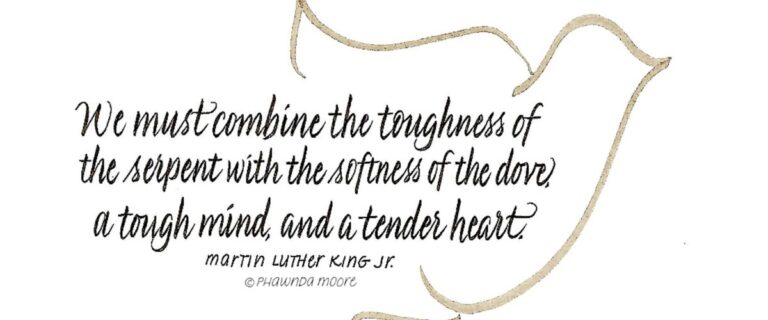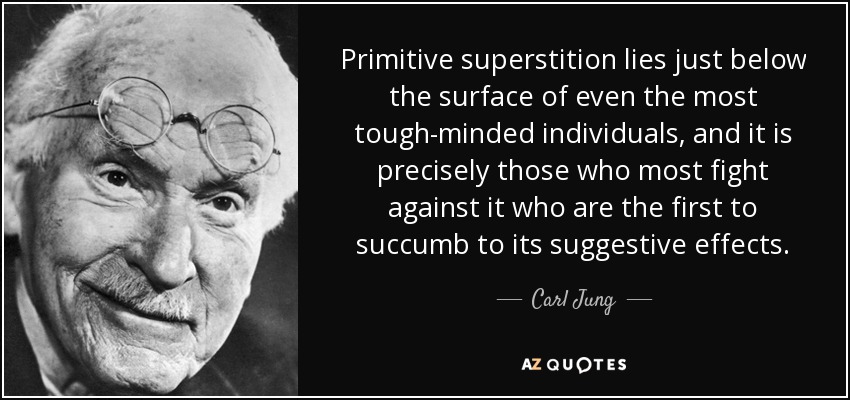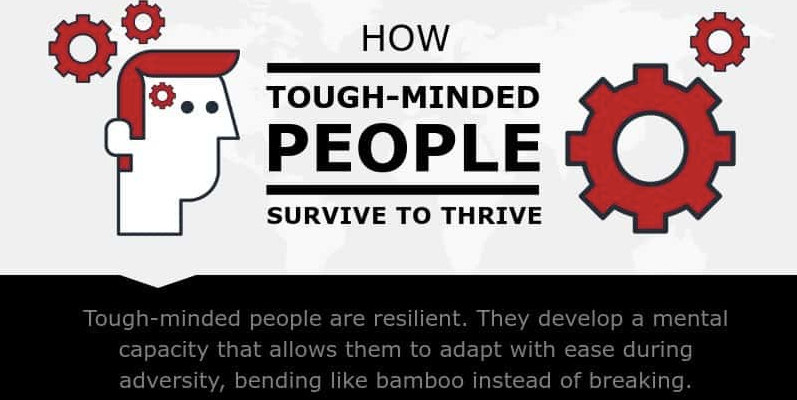
“We moeten de scherpte van de slang verenigen met de mildheid van de duif
– een weerbare geest en een warm hart.” –
Martin Luther King jr.
Description
Discover the meaning of ‘tough-minded,’ its origins, and how it describes someone with a pragmatic, realistic, and resilient attitude.

“Zelfs onder de meest bedachtzame geesten sluimert primitief bijgeloof, en juist wie het krachtigst weerstand biedt, valt als eerste ten prooi aan zijn verleidelijke kracht.” – Carl Jung
1. characterized by a practical, unsentimental attitude or point of view.
2. strong-willed; vigorous; not easily swayed.
The Free Dictionary
What does it mean to be tough-minded in a world that often confuses hardness with strength, and compassion with weakness?
The concept of tough-mindedness carries both light and shadow. At its best, it evokes resilience, clarity of thought, and moral courage — the capacity to remain grounded and lucid in the face of crisis. It is the mindset that bends like bamboo during storms, refusing to break. At its worst, however, it can slide into rigidity, cold rationalism, or a refusal to empathize.
As Carl Jung observed, even the most thoughtful minds are not immune to the primitive forces just beneath the surface — especially those who fight hardest against them. This paradox calls for a deeper understanding of human nature: we need both strength and tenderness, both clarity and connection.
Martin Luther King Jr. put it powerfully: “We must combine the toughness of the serpent with the softness of the dove — a tough mind and a tender heart.”
On this page, we explore the rich and often misunderstood layers of what it means to be tough-minded — through quotes, psychological insight, and public voices such as Dirk De Wachter, who speaks movingly about medemenselijkheid, connection, and the human capacity to endure together.
Ultimately, the question is not whether toughness is good or bad, but how it is expressed — and in service of what. Is it a shield against vulnerability, or a steady hand guided by conscience?
Wat betekent het om tough-minded te zijn in een wereld die hardheid vaak verwart met kracht, en mededogen met zwakte?
Het begrip tough-mindedness kent zowel een lichte als een duistere kant. In zijn beste vorm staat het voor veerkracht, helder denken en morele moed – het vermogen om stevig en helder te blijven in tijden van crisis. Het is die mentale kracht die buigt als bamboe, maar niet breekt. In zijn schaduwzijde kan het echter omslaan in starheid, kille rationaliteit of een gebrek aan empathie.
Carl Jung merkte op dat zelfs onder de meest bedachtzame geesten primitief bijgeloof sluimert – en juist wie er het krachtigst tegen vecht, is vaak de eerste die eraan toegeeft. Die paradox vraagt om een diepere kijk op de menselijke aard: we hebben zowel kracht als tederheid nodig, zowel helderheid als verbondenheid.
Martin Luther King jr. vatte het treffend samen: “We moeten de hardheid van de slang combineren met de zachtheid van de duif — een sterke geest en een zachtmoedig hart.”
Op deze pagina verkennen we de gelaagde en vaak verkeerd begrepen betekenis van wat het betekent om tough-minded te zijn – via citaten, psychologische inzichten en publieke stemmen zoals Dirk De Wachter, die met indringende eenvoud spreekt over medemenselijkheid, verbondenheid en het vermogen van mensen om samen moeilijke tijden te doorstaan.
Uiteindelijk is de vraag niet of tough-mindedness goed of slecht is, maar hoe het tot uiting komt – en in dienst van wat. Is het een schild tegen kwetsbaarheid, of een vaste hand die zich laat leiden door het geweten?
“We moeten de hardheid van de slang combineren met de zachtheid van de duif: een harde geest en een teder hart.” – Martin Luther King jr.
“Tough-minded” refers to a philosophy or approach that emphasizes rationality, objectivity, and a willingness to face difficult truths, even if they are uncomfortable. Here are some key points associated with this philosophy:
Rationality: Tough-minded individuals value reason and logic over emotions and intuition. They strive to think critically and objectively, weighing evidence and considering multiple perspectives before coming to a conclusion.
Realism: Tough-minded individuals accept reality as it is, rather than how they wish it to be. They are willing to face difficult truths and acknowledge harsh realities, even if they are uncomfortable or unpopular.
Independence: Tough-minded individuals are independent thinkers who do not blindly follow the opinions of others. They are willing to question authority and challenge conventional wisdom if they believe it is necessary.
Resilience: Tough-minded individuals are resilient in the face of adversity. They do not let setbacks or failures defeat them, but instead use these experiences as opportunities to learn and grow.
Determination: Tough-minded individuals are determined to achieve their goals, even in the face of obstacles or opposition. They have a strong sense of purpose and are willing to work hard to achieve their objectives.
Overall, the tough-minded approach emphasizes a commitment to rationality, objectivity, and resilience in the pursuit of truth and personal growth.
Tough-minded people are resilient. They develop a mental capacity that allows them to adapt with ease during adversity, bending like bamboo instead of breaking.
Nuchtere mensen zijn als bamboe in de storm: flexibel en standvastig. Hun mentale kracht stelt hen in staat om zich soepel aan te passen, zonder te breken onder druk.

Tough-minded people are resilient. They develop a mental capacity that allows them to adapt with ease during adversity, bending like bamboo instead of breaking.
Nuchtere mensen beschikken over veerkracht. Ze ontwikkelen een mentale weerbaarheid die hen helpt zich aan te passen in tijden van tegenspoed – als bamboe dat buigt maar niet breekt.
“Tough-minded” is a concept that can have different interpretations depending on the context in which it is used. Here are some key points that are often associated with the term “tough-minded”:
Rationality and Critical Thinking: Being tough-minded often implies being rational and possessing critical thinking skills. It means being able to objectively analyze situations, evaluate evidence, and make logical decisions based on facts rather than emotions or biases.
Resilience and Mental Strength: Tough-mindedness is often associated with resilience and mental strength. It means being able to withstand challenges, setbacks, and adversity without giving up or being easily discouraged. It involves having a strong mindset and emotional resilience to face difficulties and persevere in the face of obstacles.
Realism and Practicality: Being tough-minded often involves a realistic and practical approach to problem-solving. It means being grounded in reality and dealing with situations as they are, rather than wishful thinking or denial. Tough-minded individuals tend to focus on practical solutions and take a pragmatic approach to dealing with challenges.
Independence and Self-Sufficiency: Tough-mindedness often implies being independent and self-sufficient. It means being able to rely on oneself, take ownership of one’s actions and decisions, and not being overly dependent on others for validation or support. Tough-minded individuals are often self-reliant and have a sense of autonomy.
Assertiveness and Confidence: Being tough-minded often involves assertiveness and confidence in one’s own abilities. It means being able to express oneself clearly, assert one’s boundaries, and stand up for one’s beliefs and values. Tough-minded individuals tend to have a strong sense of self-confidence and assertiveness in their interactions with others.
Adaptability and Flexibility: Tough-mindedness often involves adaptability and flexibility in the face of change or uncertainty. It means being able to adjust and adapt to new situations, challenges, and perspectives without being rigid or resistant to change. Tough-minded individuals are often open-minded and willing to consider different viewpoints.
High Standards and Accountability: Being tough-minded often implies setting high standards for oneself and holding oneself accountable to them. It means taking responsibility for one’s actions and decisions, and striving for excellence in what one does. Tough-minded individuals tend to have a strong sense of personal accountability and a drive for self-improvement.
It’s important to note that the concept of “tough-minded” can have different connotations and interpretations depending on the context and perspective. It can be seen as a positive trait associated with resilience, rationality, and self-reliance, or it can be seen as a negative trait associated with stubbornness, rigidity, or lack of empathy. As with any concept, it’s important to consider its nuances and context when interpreting and applying it.
Over medemenselijkheid en de kunst van het mens-zijn | Dirk De Wachter | Buitenhof
Veel mensen voelen zich eenzaam: ‘Er is geen tijd om rustig te luisteren’ | RENZE
Waarom de grootste troost komt van de medemens | Dirk de Wachter | Buitenhof
Waar komt het maatschappelijk onbehagen vandaan? | Dirk de Wachter & Paul Verhaeghe | Buitenhof
“We moeten de hardheid van de slang combineren met de zachtheid van de duif — een sterke geest en een zachtmoedig hart.” – Martin Luther King jr.